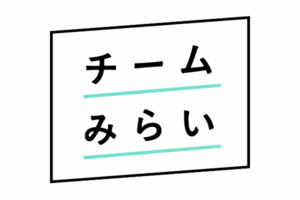Shaping the Future with AI: Team Mirai's Manifesto ver.0.2 Highlights
Hello, I'm Tak@. I usually work in system development, and in my free time, I enjoy creating tools using generative AI.
Today, I want to delve into the core of Manifesto ver.0.2, published by "Team Mirai," a political group that places technology, especially AI, at the center of social reform.
What kind of future do they envision, and what role does AI play in it? Let's explore the specifics, drawing from my own experiences. It reminds me of a time when, despite struggling with complex programming, I was fascinated by the potential of new technologies to change society.
AI and Technology at the Core of Policy
Team Mirai positions AI and technology as key components for solving societal challenges and achieving sustainable growth. I feel this reflects their strong conviction to view AI not merely as a convenient tool but as a force capable of transforming the very fabric of society.
"Interactive Manifesto": Policy-Making with Everyone
Team Mirai intentionally publishes policies that are still under discussion and development, such as "Manifesto Version 0.1 (Ultra-Early Edition)." This approach stems from their belief in actively embracing candid opinions and criticisms from the public to refine their policies. They likely believe that the best policies emerge from collecting diverse voices.
To realize this "interactive manifesto," they've introduced the open-source "Idobata System," an AI-powered platform. This system allows citizens to directly ask the AI questions about the manifesto's content, engage in discussions, and even have the AI generate proposals for policy changes or improvements. These proposals are automatically sent to Team Mirai's policy team for consideration.
This initiative aims to create a "deliberation" mechanism, where citizens can deeply engage in policy-making online, essentially acting as a "public listening AI." Team Mirai retains the final decision-making authority to ensure clear accountability, differing from simple majority rule.
"Broad Listening" to the Voices of the People
Furthermore, Team Mirai emphasizes building flexible systems that are resilient to change, enabling them to adapt to rapidly evolving global affairs and advancements in AI. As part of this, they propose utilizing "broad listening" technology to collect individual citizens' voices faster, more deeply, and continuously, reflecting them in policy.
This is truly the practice of "digital democracy," representing a new form of politics suited for the coming era.
AI Utilization to Drive Society and Administration Digitally
Team Mirai's first step in their policy is to achieve tangible results by routinely leveraging digital technologies like AI and IT. They see significant "room for growth" in Japan, where digitalization has lagged in many areas.
Concrete Examples of Digitalization Changing Daily Life
In what specific areas will they promote digitalization?
- Healthcare: For example, by combining online consultations with home medicine delivery, they aim for "hospital visits without visiting the hospital." They also plan to introduce AI for image diagnostics, enhancing diagnostic accuracy while simultaneously addressing the shortage of doctors.
- Administrative Procedures: They propose to streamline complex administrative procedures like tax filing, drawing inspiration from Estonia's model to enable online completion, including automated calculations and withdrawals. This aims to create an administration where you "don't have to go, don't have to write, don't have to wait, and don't have to get lost."
- Childcare Support: By digitizing the maternal and child health handbook and creating a "digital maternal and child passport," they aim to reduce the burden on parents. This includes automating the management of coupons and vaccines, eliminating tedious paper procedures, and allowing parents to avoid going out during challenging periods like morning sickness.
- Education: By ensuring all students can use AI, they aim to create an efficient learning environment and eliminate the "AI gap" between those who can use AI and those who cannot. I've personally developed an "AI Learning Planner" tool that suggests study plans to achieve goals, and I believe it would be wonderful to see such AI utilization expand further in education.
A Resilient Society Adapted to Change Through AI
AI's performance is improving at an astonishing rate, rapidly transforming all fields, including the economy, industry, education, administration, and science. That's why Team Mirai emphasizes the critical importance of flexibility for society as a whole to quickly adapt to these changes.
Advanced Decision-Making and Future Mechanisms Guided by AI
AI will be able to make more sophisticated decisions adapted to complex real-world situations.
- Economic and Fiscal Management: They propose strengthening mechanisms to predict various future scenarios, such as the rapid development of AGI (AI with human-level intelligence) and its significant impact on industries, and to proactively consider bold countermeasures.
- Taxation: Current tax systems often impose uniform rates based on limited information like income and age. However, Team Mirai envisions AI designing tax systems based on a broader range of information, including individual savings, economic trends, and industry-specific conditions. This could lead to a more fair and reality-aligned tax system.
- Education: Instead of uniform education based on age, they propose that AI tutors provide personalized guidance tailored to each individual's personality, interests, and concerns. This would help children learn at their own pace and delve deeper into what they genuinely want to learn.
Investing in AI and Technology for Long-Term Growth
Team Mirai positions bold, long-term investment as the third step in their growth strategy, suitable for an evolving AI era. This is a crucial initiative not just for current results but for strengthening Japan's future.
- Investment in Science and Technology: They plan to boost science and technology development by increasing grants for basic research and attracting top-tier researchers to Japan.
- Stable Energy Supply: As AI usage grows, so does the power demand from data centers. To address this, they also propose building data centers overseas in areas with low geopolitical risk.
- Promotion of Culture: No matter how advanced AI becomes, they believe culture is indispensable for humans to live with dignity and humanity. Therefore, promoting culture is also positioned as a vital part of their growth strategy for the AI era.
Team Mirai's Own Use of AI and Technology
Team Mirai is not only advancing its policies but also actively incorporating AI and technology into its own activities and organizational structure.
Establishment of the "Nagatacho Engineering Team"
They aim to establish a "Nagatacho Engineering Team" of approximately 10 exceptional engineers and researchers, funded by political party subsidies. The purpose of this team is to promote Political DX (Digital Transformation).
All developments from this team will be released as open-source, aiming to create "digital public goods" through agile development that adapts to change with sustainable funding. By changing the current situation where there are no AI engineers among Diet members and having AI and DX experts operate close to the center of politics, they intend to bring about significant change.
Role as a "Utility Party"
Furthermore, Team Mirai aims to serve as a "utility party," actively supporting other political parties in their policy-making, technology utilization, and DX efforts. They hope this will trigger the evolution of the entire rigid political world. The fact that their manifesto is published on GitHub, allowing anyone to view and propose changes, is a clear demonstration of this open stance.
Conclusion
Upon closer examination of Team Mirai's Manifesto ver.0.2, it's clear they view AI and technology not merely as tools but as the fundamental groundwork for fundamentally improving society's mechanisms and people's lives.
They aim to gather public opinion using AI, streamline administration, create flexible systems that can adapt to societal changes, and make bold investments in the future.
Furthermore, their initiative to establish the "Nagatacho Engineering Team" and create "digital public goods" through open-source development is noteworthy. This reflects their hands-on approach and commitment to transparency.
The vision of "a Japan where no one is left behind through technology," advocated by Takahiro Anno, an AI engineer and the leader of Team Mirai, is very appealing to those of us who believe in technology's potential. I will be watching closely to see if their goal of a more resilient and sustainably growing Japan, guided by AI, can truly be realized. Please feel free to share your thoughts.



